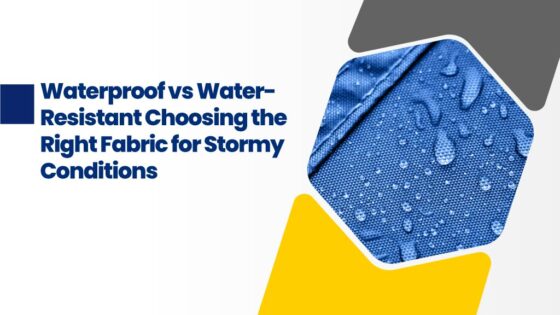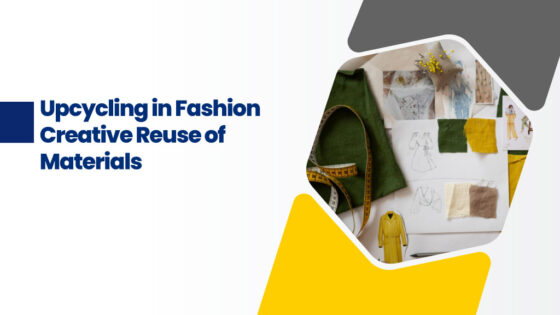If you’re a Gen-Zer, you’ll find the term “fashion” as the most alluring word. Yes, fashion is not just a word, but an emotion for many fashion enthusiasts in this current world, where reliable fashion has seen a great boom in terms of trends, values, and cultural movements.
If you have ever closely watched giant fashion brands making sustainable movements, it is because of Gen-Zers’s conscience over mindful purchases. They are fully aware of the pressing climate change and global warming scenarios that are mainly created through cloth dumping.
Because of this shopping spree spreading among Gen-Z fusionists, people are getting influenced to opt for sustainable shopping and this trend has inspired various well-established fashion & lifestyle brands to go for more transparent business along with adopting sustainable cum ethical production.
Pursuing the best fashion designing program in the top B.Des (Fashion Design) colleges in Coimbatore will bring you the practical sides of fashion design along with learning an unprecedented fashion trend that switches from time to time.
But, have you ever wondered how collectively Gen-Zers are taking steps to achieve this goal? Well, the influence of social media has taken pressing situations too far.
Read on further to understand Gen Zers’ fashion purchasing patterns and how they are leading the charge for ethical fashion practices.
What are Ethical Fashion Practices
You might be wondering what Gen Zers mean by ethical fashion practices, right?
Don’t worry! We’re here to explain what practices make a brand ethical and eco-friendly.
Ethical fashion practice is the rise of conscious consumerism. Right from the beginning of sourcing eco-friendly raw materials to producing more sustainable clothes with transparent labor policy and supply chain practice is what we call ethical fashion practices.
It’s a method of introducing sustainability to clothes, fair labor policies, and encouraging upcycling, transparency in production, and supply chain management practices, where the shift is from complete fast fashion to ethical-value creation, eco-friendly green production in fashion.
Brands that follow these practices are winning over the hearts of Gen Zers by caring more about style and ethics.
How Gen Z is Leading the Charge for Ethical Fashion Practices
- Gen Z’s Influence on Creating a Circular Economy
Can you believe that fashion trends repeat itself over time? From high-waist pants to 80’s crochet patterns fashion is finding its way in the 21st century. This is why the concept of ‘wear and tear’ is fading away from fashion and shifting the focus to prolong the lifetime of wearables.
Here comes the rise of the circular economy, which means to reduce the amount of waste by increasing the utility of resources in various ways. This practice induces reuse, recycle, upcycle, and repurpose concepts in the fashion industry.
From well-known lifestyle brands like Nike to the most bought fashion brand H&M has started the practice of bringing zero waste to reality by recycling and repurposing and the concept of pre-owned purchase of durables, also known as thrifting, has seen a boom in the present days.
- Sustainability Through Circular Economy
Gen-Zers are actively studying human-made environmental exploitation, where tonnes of clothing waste induce high carbon emissions.
Hence, they are prioritizing eco-friendly production, reducing waste, and promoting circular fashion, where products are made to last longer or be reused and recycled.
The buzzing concept of the “Slow Fashion” movement that emphasizes quality over quantity is gaining traction, as Gen Zers are looking for ways to reduce their carbon footprint by buying fewer, but more durable items.
Thanks to social media for recognizing sustainable practices, the influencers are supporting concepts of thrifting and repurposing among their audiences and ethical brands.
This influence has reintroduced and popularised vintage fashion trends in the present period, as this leveraged brands to initiate take-back programs and resale of vintage clothes to customers with no dumping & production needs and created thrifting enthusiasm among fashionistas.
Here are the wide sustainable practices Gen Z’s adopted to ensure circular fashion and reduced carbon footprint lately,
- Upcycling, Recycling, Reselling, and Repurposing through DIY fashion
- Eco-friendly purchases by campaigns and recycled goods sales
- Thrifting
- Pre-owned purchases
- Purchasing from brands that have transparent business models, fair labor policies, and supply chain management
- Supporting ethical brands by getting inspiration from online communities and supporting movements.
You can understand better fashion trends and sustainable practices for global fashion hub success through a well-established B.Des curriculum in the top B.Des colleges in Coimbatore.
- Diversity and Inclusivity
If you’ve noticed the media industry for a long time, you would know that the buzz for gender-free clothing has already taken over the celebrity media spectrum. This shows the inclusiveness promoted by brands among consumers and fashionistas.
Gen-Zers not only demand ethical clothing production but also fashion that is accessible to all body types, skin tones, and genders.
Brands that embrace gender-free fashion, size diversity, and recognition of various races and ethnicities are winning over Gen Zers.
Clearly, this generation rejects the narrow beauty standards that have traditionally dominated during the 80s and 90s in the fashion industry, thereby becoming conscious and advocating for change in this fashion world along with supporting social justice and equality.
This influence is primarily reshaping the global fashion industry. Various fashion and lifestyle brands are now experimenting with campaigns, upcycling recognitions, take-back programs, and recycled production for more sustainable practices to attract Gen Zers’ attention and increase profitability.
Hence, Gen Zers are being the catalyst for sustainable cum ethical fashion change, thereby taking charge for eco-friendly and gender-free clothing production.
Karpagam School of Architecture, also known as KARCH, is the best B.Des Colleges in Coimbatore, thereby bringing students the best-in-class environment, diverse learning opportunities, Industry-based curriculum with world-class faculties, and global career advantages.
Gen Z: A whole revolutionary pack, is notably becoming conscious of the fashion industry, with pressing situations of climate change, carbon footprint, globalization, increased pollution, and exploitation making daily headlines.






